News
-
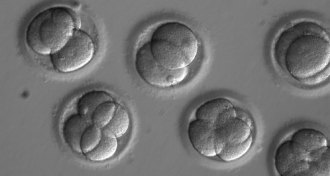 Genetics
GeneticsResearchers say CRISPR edits to a human embryo worked. But critics still doubt it
Researchers say that they have confirmed CRISPR/Cas9 edits of a heart disease–causing version of a gene, but critics still have doubts.
-
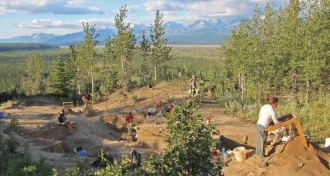 Archaeology
ArchaeologyThe debate over people’s pathway into the Americas heats up
Defenders of an ice-free inland passage for early Americans make their case.
By Bruce Bower -
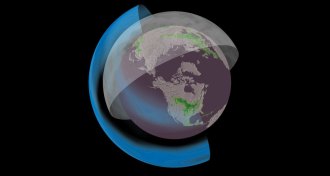 Earth
EarthGlobal dimming may mitigate warming, but could hurt crop yields
Injecting a veil of tiny particles into the atmosphere might reduce global warming, but it could also lower crop yields.
-
 Life
LifeNasty stomach viruses can travel in packs
Contained clusters of rotavirus and norovirus caused more severe infections in mice than the same viruses working solo.
-
 Health & Medicine
Health & MedicineZika may harm nearly 1 in 7 babies exposed to the virus in the womb
A new CDC report tallies neurological and developmental problems, in addition to birth defects, possibly due to Zika in U.S. territory–born babies.
-
 Neuroscience
NeuroscienceFootball and hockey players aren’t doomed to suffer brain damage
A comprehensive look at the brains and behavior of retired professional football players and retired hockey players finds no signs of early dementia.
-
 Astronomy
AstronomyAstronomers saw the first mass eruption from a star that’s not the sun
The first coronal mass ejection observed fleeing another star was as massive as scientists expected, but carried less energy.
-
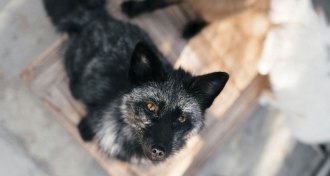 Genetics
GeneticsThe first detailed map of red foxes’ DNA may reveal domestication secrets
Thanks to a newly deciphered genome of red foxes, researchers have pinpointed regions in the animals’ DNA linked to taming them.
-
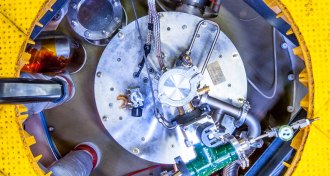 Physics
PhysicsStrange metals are even weirder than scientists thought
Some strange metals are odd in more ways than one, and that could help scientists understand high-temperature superconductors.
-
 Astronomy
AstronomyNext to its solar twins, the sun stands out
Our sun has subtly different chemistry from its peers, which may help pinpoint stars with systems like our own.
-
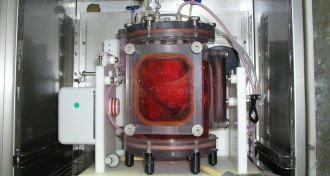 Health & Medicine
Health & MedicineScientists successfully transplant lab-grown lungs into pigs
Pigs implanted with lab-grown lungs recovered from surgery with no breathing problems.
-
 Genetics
GeneticsThe ‘language gene’ didn’t give humans a big leg up in evolution
Scientists have long debated the role of a gene called FOXP2 in recent human evolution.